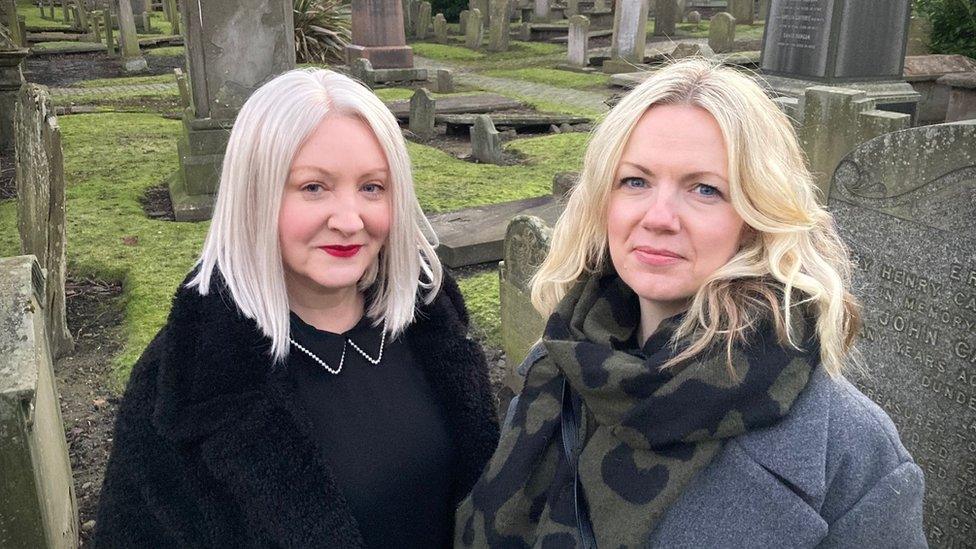Witches of Islandmagee plaque unveiled 300 years after trial
- Published
'They were innocent, they weren't witches'
A plaque has been unveiled in Islandmagee, County Antrim to commemorate the last witch trial on the island of Ireland.
The trial took place at Carrickfergus courthouse in 1711 when eight women and a man were found guilty of performing witchcraft against a young woman.
Mary Dunbar had accused them of bewitching and tormenting her.
Author Martina Devlin had campaigned for the plaque since 2014 to remember the "lingering injustice".
Who were the Islandmagee witches?
The women and man, who would become known as the Islandmagee witches, were all sentenced to a year in jail and forced to do time in the public stocks, a narrow escape from the death sentence.
Ms Devlin told BBC's Good Morning Ulster programme: "[Mary Dunbar] said they were tormenting her, that they were witches, they wanted to her to join their coven."
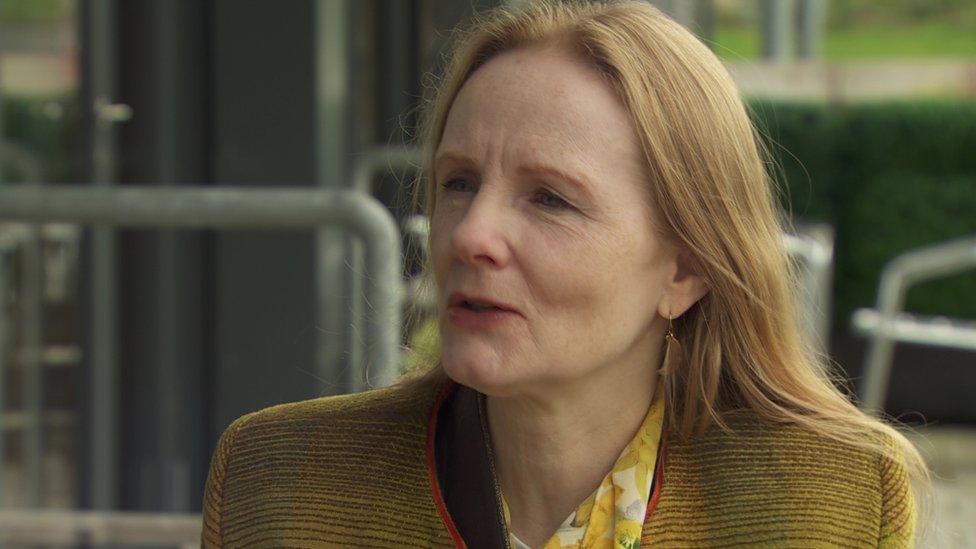
Martina Devlin has campaigned for the plaque for nearly 10 years
Ms Devlin said Dunbar had claimed the witches could make themselves tiny and reach her through her bedroom keyhole.
"This was important because this was spectral evidence, it was accepted at the court. Invisible spirits which the [victim] was the only person who could see and there was no medical evidence entered," she added.
Ms Devlin said the eight women "fitted the template" of witchcraft at the time.
The author and journalist, who has written a novel about the trial, said she has never been able to forget the women and the man.
Those convicted were from Islandmagee and the surrounding areas.
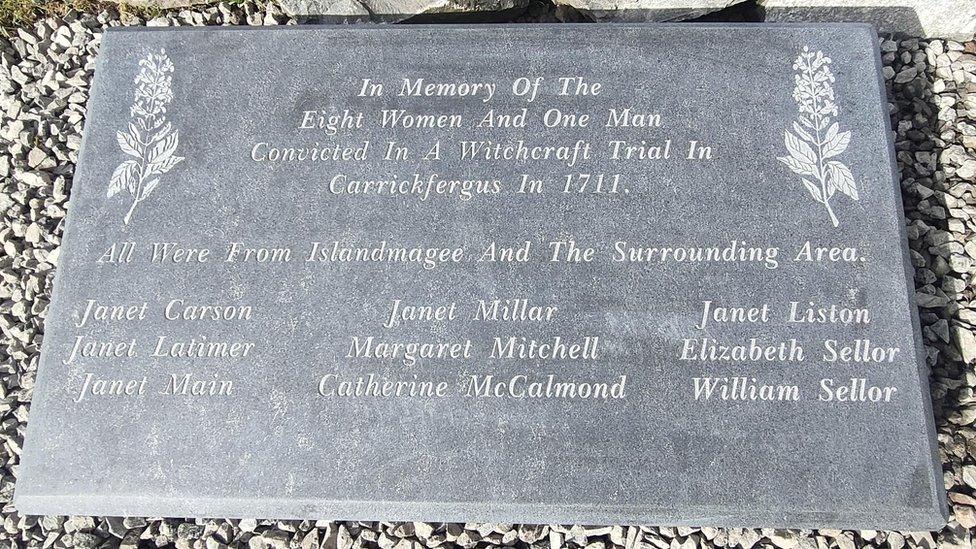
The plaque was unveiled at the Gobbins Visitor Centre
"It struck me as a lingering injustice. They were convicted of a crime they could not possibly have committed," Ms Dunbar said.
Speaking at the plaque's unveiling at the Gobbins Visitor Centre, Mid and East Antrim Mayor, Alderman Noel Williams, said the council wanted to "make it part of our history".
"You can imagine the impact that it has had on the accused and indeed the wider community because there are people who still live in the community who were connected to them."
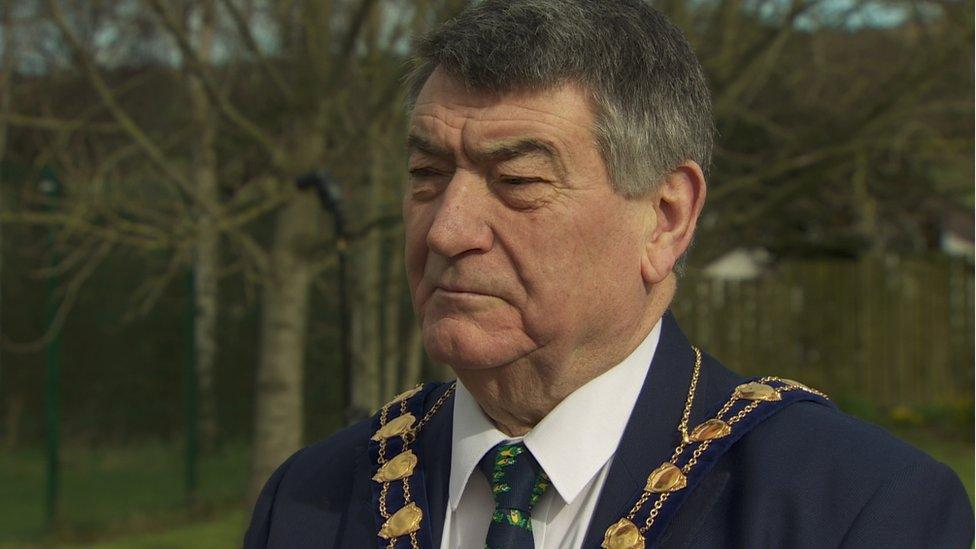
Mayor Noel Williams said the plaque made the story a part of local history
The plaque has faced some opposition.
Keith Turner, a UUP councillor on Mid and East Antrim Borough Council, rejected a proposed line on the plaque declaring the women and man's innocence, the Sunday Life reported, external.
He argued the council had no authority to clear their convictions. The line is not included on the plaque.
Ms Devlin said: "It is important to remember these stories and learn from them.
"It is important to recognise the injustice publicly."
Related topics
- Published5 February 2015
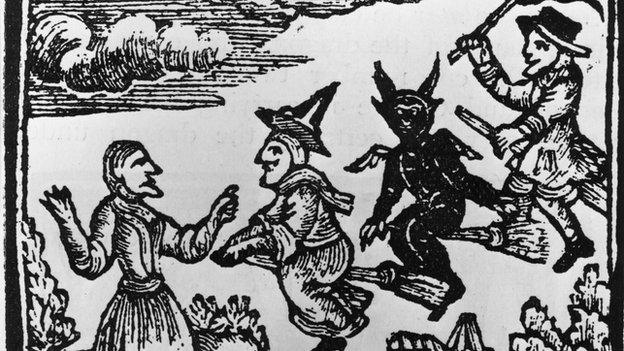
- Published7 January 2022
